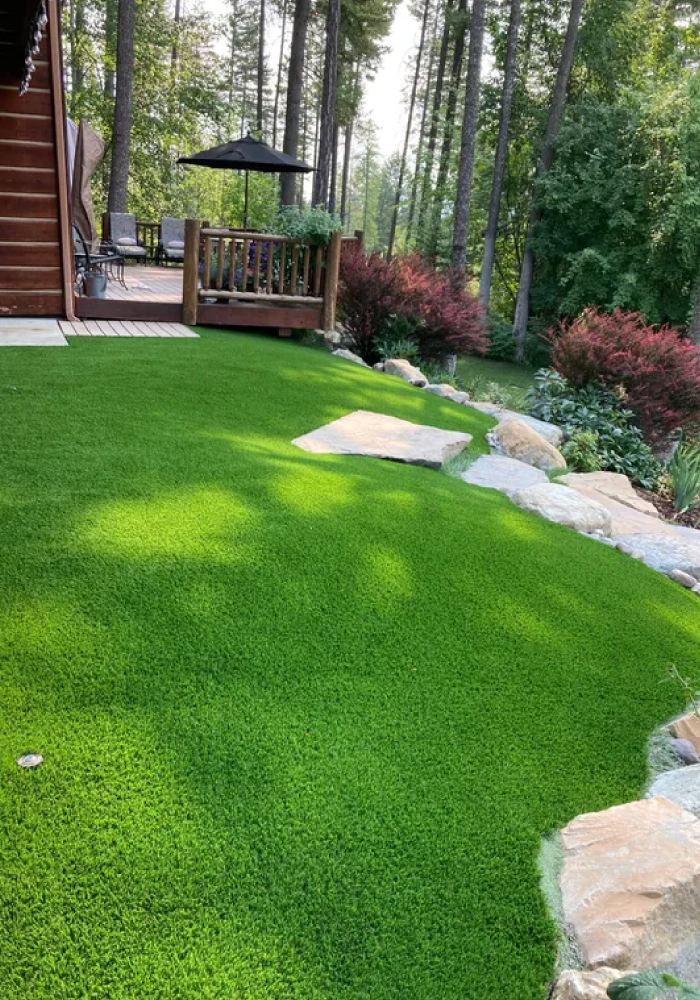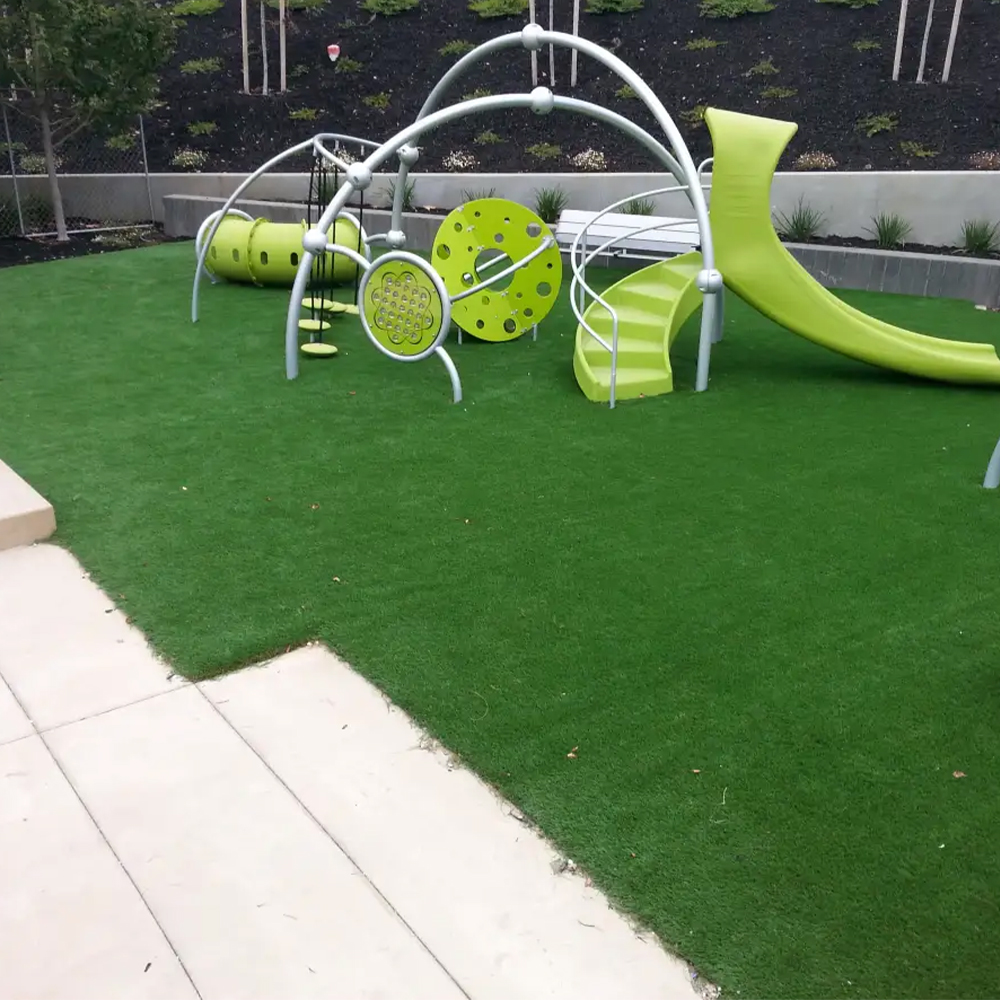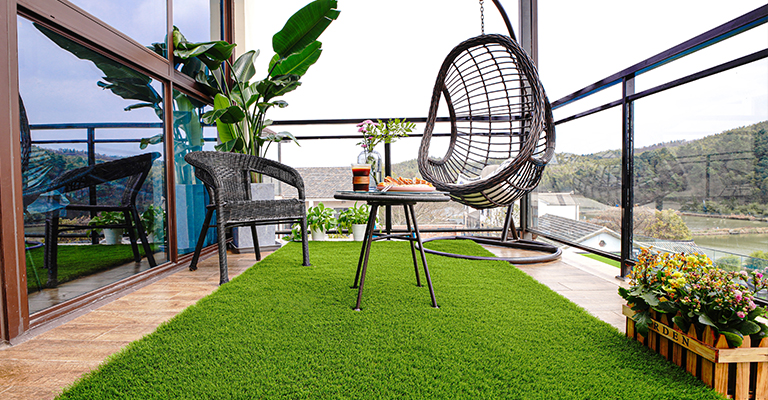Professional Arizona Turf Installation Services for Residential and Commercial Use
Professional Arizona Turf Installation Services for Residential and Commercial Use
Blog Article
Delve Into the Environmental Conveniences of Opting for Synthetic Grass Solutions
The adoption of fabricated turf remedies provides an engaging possibility to address pressing ecological challenges. By substantially reducing water usage and reducing the application of harmful chemicals, these alternatives not only promote lasting landscape design yet also safeguard regional communities.
Water Preservation Conveniences
Among the most considerable advantages of fabricated lawn is its capability to save water. Conventional lawn yards require substantial watering, particularly in areas vulnerable to dry spell or water restrictions. In contrast, synthetic grass does not require watering, considerably reducing the total demand for water sources. This attribute is particularly beneficial in deserts where water deficiency is a pressing issue.
By removing the demand for regular watering, fabricated grass contributes to lasting landscape methods and helps minimize the environmental impact of excessive water consumption. Moreover, the conservation of water encompasses the reduction of overflow, which can cause dirt disintegration and waterway pollution.
In addition, the setup of fabricated lawn permits municipalities and property owners to assign water resources extra successfully, concentrating on crucial uses such as alcohol consumption water and farming. The shift towards synthetic grass not only advertises liable water usage however additionally straightens with wider ecological goals focused on maintaining natural deposits.
As neighborhoods increasingly prioritize sustainability, the water preservation benefits of synthetic grass present a compelling instance for its adoption in industrial and property landscaping jobs.
Decreased Chemical Use
The change to synthetic grass substantially reduces the dependence on chemical therapies frequently made use of in all-natural lawn upkeep. Traditional turf management typically includes the application of fertilizers, herbicides, and chemicals to promote growth and control pests. These chemicals can position threats to human health, local wild animals, and the environment, adding to dirt and water contamination.
In comparison, synthetic grass gets rid of the requirement for these dangerous materials. By lessening the release of artificial compounds into the community, synthetic turf advertises healthier soil and water systems.
In addition, the absence of chemical drainage connected with man-made lawn setups aids safeguard local rivers from pollution, supporting marine life and maintaining biodiversity. Artificial turf companies phoenix. As areas progressively focus on lasting techniques, selecting artificial grass presents a sensible option that aligns with environmental preservation goals. Via this change, residential or commercial property owners can appreciate lavish green rooms without compromising ecological health, leading the way for a more lasting future
Lower Carbon Impact

In addition, the installment of synthetic grass can result in substantial water conservation. Natural lawns require considerable quantities of water for watering, which not only includes in the carbon footprint connected with water removal and therapy but likewise pressures regional water sources. In comparison, artificial grass requires marginal maintenance, calling for no watering, thus dramatically reducing water usage and its linked power prices.
In addition, the durability of man-made lawn adds to its decreased carbon effect. With a life-span of approximately 15 years or more, the demand for constant substitutes is continue reading this reduced, resulting in much less waste and lower energy intake in production and taking care of typical yard options. In general, synthetic grass presents a Bonuses lasting alternative for ecologically mindful landscaping.
Environment Conservation
Habitat conservation is a vital consideration in the debate over landscaping selections, specifically when contrasting synthetic grass to natural lawn. Natural grass yards often call for substantial maintenance, consisting of making use of chemicals, fertilizers, and herbicides, which can adversely impact neighborhood communities. These chemicals can leach right into the dirt and waterways, harming native flora and fauna and interrupting neighborhood environments.
Fabricated grass eliminates the requirement for unsafe chemicals, thus safeguarding neighboring wild animals and keeping the honesty of bordering ecosystems. The installation of synthetic grass can lead to the conversion of previous turf areas right into even more biodiverse landscapes, such as pollinator yards or native plant locations, which can sustain local wild animals.
Eventually, the shift to man-made lawn not only saves water and lowers maintenance initiatives however also promotes a more harmonious partnership between human activities and the native environment, advertising habitat preservation at the same time.
Long-Term Sustainability
Long-lasting sustainability is a vital consider examining the benefits of synthetic grass over standard lawn yards. Among one of the most substantial advantages of synthetic grass is its toughness; it can last up to 15-20 years with very little upkeep, whereas natural yard requires constant reseeding and substitute. This longevity decreases the need for constant sources, such as water, plant foods, and pesticides, which are essential for maintaining a healthy and balanced grass yard.
Additionally, synthetic grass adds to a reduction in carbon discharges associated with grass care tools. Standard lawns often call for gas-powered mowers, trimmers, and blowers, all of which add to air pollution. Arizona artificial turf. On the other hand, synthetic grass eliminates the need for such equipment, promoting a cleaner environment
Moreover, the production of synthetic turf increasingly uses recycled materials, boosting its sustainability profile. As manufacturers take on environmentally friendly methods, the ecological impact of man-made turf remains to lessen.

Verdict
The fostering of synthetic grass solutions provides significant ecological advantages, consisting of considerable water preservation, minimized reliance on hazardous chemicals, and a lower carbon impact. Furthermore, synthetic grass help in protecting all-natural habitats by decreasing land disturbance and advertising long-term sustainability with using sturdy materials. Collectively, these variables emphasize the capacity of synthetic grass to contribute positively to ecological health and wellness and offer a viable alternative to typical next page landscape design techniques in a progressively resource-conscious world.
In comparison, artificial lawn does not require watering, substantially decreasing the total need for water resources. By minimizing the release of synthetic substances right into the ecosystem, synthetic grass promotes healthier dirt and water systems.
In addition, the installation of synthetic grass can result in considerable water preservation. In comparison, synthetic grass requires very little upkeep, calling for no watering, therefore considerably minimizing water use and its linked power costs.

Report this page